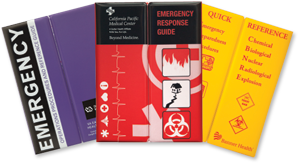By Stewart Gandolf, Chief Executive Officer
It’s not your imagination. People really are ruder to each other these days.
The pandemic, economy, political unrest, war, and continued uncertainty have taken—and continue to take—a toll on people’s mental health. These all contribute to stress, anxiety, frustration, and anger.
And according to Harvard Business Review, frontline workers are taking the brunt of this unrest and aggression. Why?
In today’s post, I share vital insights on why everyone’s so angry, how health leaders can more effectively support their employees, including tips so they can better prepare for our new, albeit unfortunate, reality.
But first, we must understand what’s happening in healthcare and the world-at-large post-pandemic.
To be clear, workplace violence experienced by healthcare workers predates the pandemic. The rate of injuries from violent attacks against medical professionals grew by 63% from 2011 to 2018. However, these numbers escalated in 2020, along with the COVID-19 pandemic.
Why are people so angry and rude?
How did we get here? According to research from Christine Porath, author of Mastering Civility, it’s the result of several compounding factors:
- Stress
73% of her survey respondents who had been rude to a coworker blamed stress as the primary reason. - Negative or angry emotionsAccording to her survey of 70,000 “The Mighty” readers and community members, the number of people choosing anger as their top emotion more than doubled from March to September 2020—rising from 20% to 45%.
- Lost sense of community
Her survey of 1,500 Conference for Women participants found that their sense of community had decreased by 37% since the pandemic’s beginning. - Lack of self-awareness
The most eye-opening statistic comes from Tasha Eurich, an organizational psychologist, and colleague of Ms. Porath. She states that a whopping 80%–85% of people lack self-awareness, meaning they misunderstand how they’re perceived and how they affect others. - Technology overuse
Ms. Porath also found that technology overuse leads to increased exposure to negativity and misinformation. It also allows us to voice opinions or insults from a safe distance (and often without consequence). - Increased isolation and substance use
When the stay-at-home orders were put in place, many people began to self medicate their stress and anxiety by misusing drugs and alcohol amid the pandemic. And, for those with a pre-existing addiction, it became more difficult to get help from AAA meetings as people were unable to gather in person. Both of which had a dampening effect on mental health and wellness.
Being rude or acting in an unsavory way toward others is contagious, and it can quickly spread through social groups and into professional organizations, particularly healthcare.
Why are people so angry at healthcare workers?
Though we appear to be through the worst of the pandemic, frustrations remain exceptionally high in healthcare for several reasons:
- Longer wait times
- Delayed elective surgeries
- Untreated health conditions
- Stricter health and safety protocols
- Misinformation surrounding COVID
- Increased bankruptcy (resulting from job and health insurance loss)
- Mounting medical bills
This has created a pressure cooker situation in urgent care facilities, hospital rooms, and medical offices.
According to the American Nurses Association, 1 in 4 nurses is assaulted on the job. And you don’t have to search long to find stories like this:
- A hospital in Missouri gave their staff panic buttons after hospital staff assaults rose from 40 in 2019 to 123 in 2020—more than a 200% increase.
- A gunman opened fire at a Dallas Methodist Medical Center—killing two nurses in September.
- Healthcare workers in Idaho are hesitant to be seen in their scrubs anywhere in public—due to rampant misinformation and fear of verbal and physical assault.
So, how can health leaders help frontline workers and other employees protect their mental and physical health while managing a steady stream of angry patients?
6 Ways Healthcare Leaders Can Protect the Mental Health of Their Employees
Many providers and hospital staff are dissuaded from pressing charges because it can lead to PR issues and affect hospital ratings. However, if you prioritize the health and well-being of your staff and the patients they treat—accolades are likely to follow.
1. Encourage people to report abuse and violence.
Equip employees with the resources and support they need to protect their mental health, so they can better manage and cope with angry patients. Provide clear reporting policies, streamline forms, and follow up on each report.
2. Offer stress management educationFrontline workers need healthy ways to manage and cope with stress. Provide access to free resources like seminars, classes, courses, and apps to help them learn healthy and effective coping strategies.
3. Build a supportive cultureEveryone, including healthcare workers, deserve professional mental health care and support. All too often, mental health takes a back seat in professional settings. Stop the stigma by encouraging employees to seek the help they need. This creates a safe environment where employees feel comfortable seeking the help they need.
4. Offer de-escalation trainingDe-escalation is not taught in medical or nursing school, but it should be. Give your hospital staff the tools they need to effectively de-escalate verbal and physical altercations and protect themselves with non-abusive physical protection and restraint if needed.
5. Resolve internal conflicts as wellSadly, it isn’t just patients who have become angrier and ruder. So, you’ll need to manage internal conflicts between employees, providers and staff.
6. Recognize and reward civilityThe best way to show how much thoughtfulness and kindness matter to your organization is to recognize and reward it. Public displays of appreciation have a positive ripple effect on employee retention, mental health, and overall well-being.
You Can Still Deliver a Great Patient Experience Even When Tempers Flare
Understanding how to manage difficult situations and deliver an exceptional patient experience amid conflict is vital to maintaining the integrity of your brand.
It can be extremely difficult to not take things personally when dealing with an angry patient, but doing so will help you stay focused on the situation, rather than the emotions that surround it.
Here are ten ways you can effectively de-escalate situations and get both you and your patient back on track:
- Tune-in early
- Actively listen
- Remain calm
- Start with “I’m sorry.”
- Acknowledge feelings
- Position providers as an ally—not an adversary
- Find options and suggest solutions
- Act quickly
- Empower everyone
- Learn from fixing the problem
If you’re a provider, nurse, or hospital staff member looking for more detailed information about how these tips can help, read our blog, “How to Deal with Angry Patients.” In it, we unravel these ten tips and help you learn how to quickly and effectively navigate unexpected situations and defuse patient frustration.
This post appeared on the Healthcare Success Blog and is shared with consent: https://healthcaresuccess.com/blog/physician-marketing/why-are-patients-so-angry-plus-frontliner-tips-for-health-leaders.html







